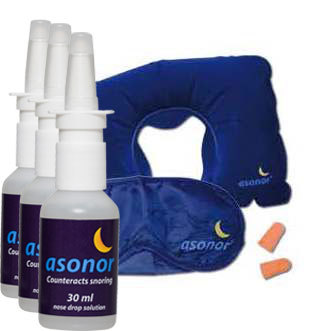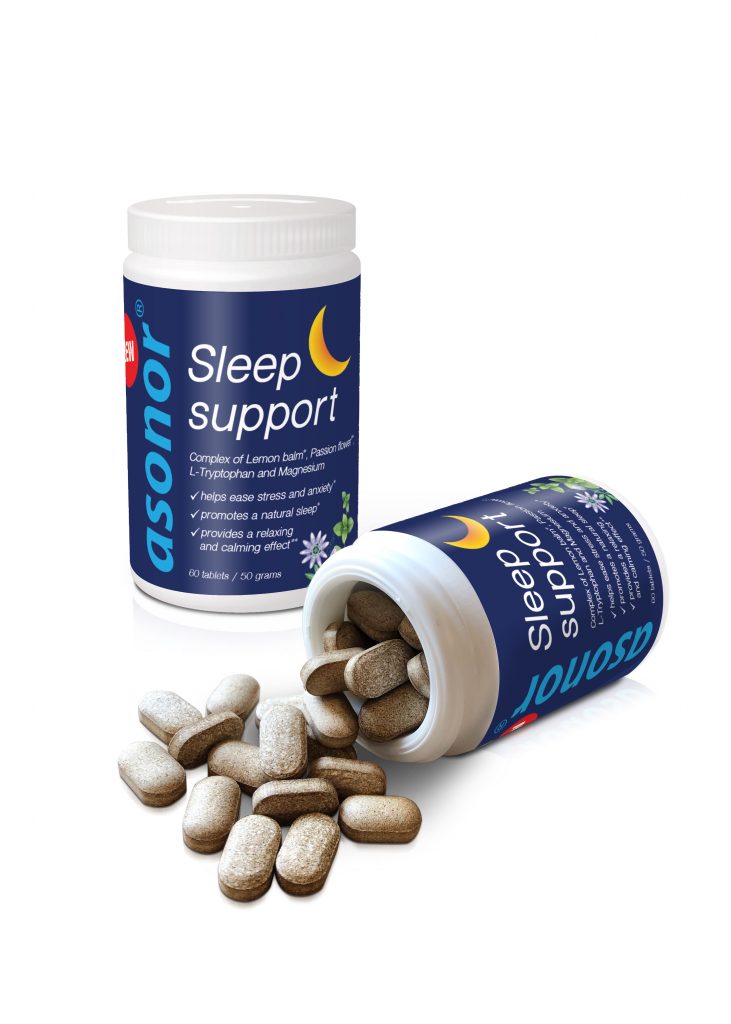Snoring is never taken seriously unless it creates a disturbance. Although, nowadays people have started taking snoring seriously. But, there is a slight confusion between snoring and sleep apnea. Since, both gave the same result of noise, no matter what the cause is. And, thus it is necessary for everyone to know the causes of sleep apnea and how to treat it.
In simple terms, sleep apnea can be described as the disruption caused during night time due to repeatedly stops and starts of breathing. In fact, it is being found that every 2 in 10 are suffering from sleep apnea.
Well to make it more serious, if untreated sleep apnea can even cause hypertension, stroke, or heart failure to the person.
Thus, it is important to classify them into three types that are; Obstructive, central and mixed. Obstructive sleep apnea: It is caused by partial or complete blockage of the nasal passage. Obstructive sleep apnea in most general form has an effect of over 6% of the population. Here, a person’s throat muscles relax, allowing the tongue and fatty tissues of the throat to fall back into the airways and block the airflow while sleep.
Central sleep apnea: It is the situation, when the brain temporarily fails to give signal. Muscles responsible for controlling breathing create central sleep apnea. It is more of a communication problem, unlike obstructive.
Medical problems and conditions which affect the brainstem can result in central sleep apnea.
Mixed sleep apnea: It is the condition, where obstructive or central sleep apnea result in mixed sleep apnea. It is also known as complex sleep apnea. Well, the symptoms are hard to distinguish between the types.
The causes of all the above types of sleep apnea is almost same that is,
- Gaining weight
- Over consumption of Alcohol and sleeping pills before going to bed
- Sleeping in the same position whole night
- Smoking on daily basis and before going to bed.
- Sleeping on the back.
Since, we know the causes of sleeping apnea, we can also go for the treatment simply. By quit smoking, drinking and consuming sleeping pills. Do exercise daily to stay fit and get the benefit. Change the sleeping position and sleep properly.
What are the types of sleep apnea?
Sleep apnea is a serious health issue that is characterized by pauses in breathing during sleep and is accompanied with snoring. These are the three types of sleep apnea:
- Obstructive Sleep apnea: This is the most common apnea and is due to the excessively relaxed throat muscles, causing partial blockage, which leads to snoring.
- Central sleep apnea: The breathing pauses occur as the brain fails to send in the signals to the respiratory muscles to breathe normally.
- Complex Sleep apnea: This is a mix of both obstructive and central sleep apnea. It disrupts normal sleep patterns and lowers the blood oxygen levels. That leads to fatigue, daytime drowsiness and loud snoring. A sleep diagnosis is essential.
How common is sleep apnea?
Usually undiagnosed, sleep apnea affects millions all over the world. It is considered that 1 out of 5 adults have mild OSA while 1 in 15 suffers from severe sleep apnea. It strikes more men than women especially if they are old, overweight and have other risk factors. However, sleep apnea affects children oftentimes and is linked with obesity and enlarged tonsils. Though it is a common sleep disorder, it often goes unnoticed as loud snoring, choking awake and chronic fatigue along with sleep deprivation is dismissed. However, if the sleep disorder is diagnosed early and treated properly, it can prevent other health issues such as cognitive issues, cardiovascular diseases and stroke.
What are the symptoms of sleep apnea?
Sleep apnea is a serious health issue that needs proper medical attention. It is marked with pauses in breathing, loud snoring and fatigue. Other symptoms include:
- Irritability
- Daytime fatigue
- Morning headaches
- Poor alertness levels
- Sore throat and dry mouth upon waking
- Restless sleep
Sleep apnea can lead to restless sleep, insomnia, low blood oxygen levels, frequent awakenings at night. Additionally, it puts you at risk of developing heart diseases, hypertension and even anxiety. Sleep apnea can affect overall health and that is why it is important to get a proper diagnosis so that treatment can start to improve your quality of sleep and overall health.
What causes sleep apnea?
Usually, sleep apnea is linked to obstructions in the airway or the brain fails to send in the right signals to the respiratory system when you are asleep. OSA happens when the muscles in the throat relax, narrowing the airways and increasing vibrations in the soft tissue leading to snoring. Some of the common risk factors leading to sleep apnea include large neck circumference, obesity, nasal congestion, smoking and alcohol consumption. Oftentimes, physical anomalies lead to snoring such as deviated septum, recessed chin or misaligned tonsils. Additionally, some medications and undiagnosed health ailments such as heart issues can enhance the risk of sleep apnea. That is why proper diagnosis needs to be done for treatment to start.
What are the risk factors for sleep apnea?
There are many risk factors that enhance the development of sleep apnea. Some of these include:
- Extra layers of fat around the neck can obstruct the airways
- It is more common in older people as muscles lose tone. Men are more prone to it than women as they have narrower airways
- Family history of sleep apnea increases the chances while alcohol consumption and smoking can exacerbate it.
- Physical anomalies such as enlarged tonsils, narrow airways can prone to sleep apnea as they snore loudly.
- Sleep apnea is associated with heart issues, Type 2 diabetes and high blood pressure can put you at risk.
That is why seeking medical assistance becomes important if you are a chronic snorer and wake up gasping for breath.
What are the complications of sleep apnea?
If sleep apnea remains untreated, it can lead to serious health issues such as high blood pressure, cardiovascular problems, irregular heartbeats, heart attack, diabetes and stroke due to poor oxygen levels in the blood. You suffer with chronic fatigue, drowsiness throughout the day, cognitive issues and mood swings due to disrupted sleep patterns. It starts to affect your mental health, leading to depression, irritability and behavioral issues. If sleep apnea goes undiagnosed, it poses long-term health issues. That is why if you are gasping awake at night due to pauses in breathing, it might be time to consult with a doctor.
Conclusion
Although sleep apnea is categorized in three distinct forms namely, central sleep apnea (CSA), obstructive sleep apnea (OSA) and complex sleep apnea syndrome (a combination of both), the common factor remains that there are disruptions in sleep and loud snoring. The main reason is obesity, partially blocked airways and relaxed throat muscles. Central sleep apnea is primarily linked to the brain failing to send in the right signals to the respiratory muscles which control breathing. The common reasons include alcohol consumption, obesity, sedatives, and smoking. From CPAP therapy to making lifestyle changes, you can stop snoring, improving sleep quality with considerable ease.
FAQs
Is sleep apnea more common in men or women?
Sleep apnea is common in men as compared to women. In middle age men are at a risk of developing it three times more than women. However, the risk of developing sleep apnea in women increases after the menopause. But the symptoms are vague and that is why it is often misdiagnosed.
Can sleep apnea cause daytime sleepiness?
Yes, sleep apnea is one of the key factors for daytime drowsiness due to disrupted sleep at night. Due to pauses in breathing and waking up gasping for breath all through the night, the apneic episodes lead to low blood oxygen levels and sleep deprivation over time.
Does smoking or alcohol use contribute to sleep apnea?
Yes, alcohol consumption and smoking can be one of the reasons to contribute to sleep apnea. Smoking inflames the nasal passages, enhancing the risk of obstruction in the airway. Alcohol relaxes the throat muscles which increases snoring. That is why limiting alcohol can help improve the symptoms of sleep apnea.
Is sleep apnea more common in people with large necks?
Yes, sleep apnea is common in men with thicker necks. The bigger neck circumference indicates extra soft tissue in the nasal passages and airway. That increases risk of obstruction in the airway when you are asleep. That is why if an individual with thick neck lays down, he is prone to Obstructive sleep apnea.
Can sleep apnea cause high blood pressure?
Yes, sleep apnea can cause hypertension as oxygen levels drop due to apneic episodes. That triggers stress hormones which constricts blood vessels and enhanced heart rate. Thus, treating sleep apnea helps to lower the blood pressure and reduces risk of cardiovascular diseases.





